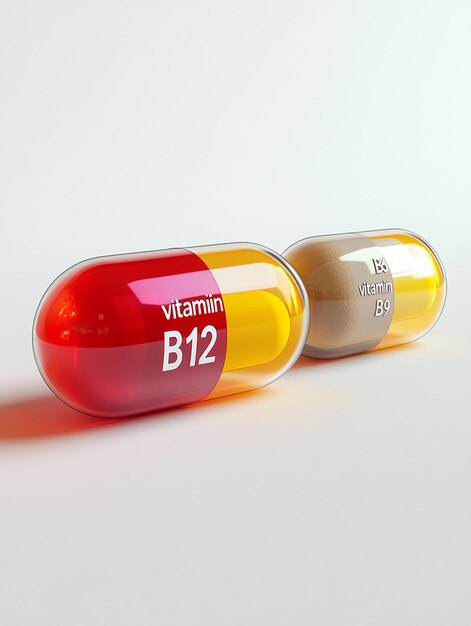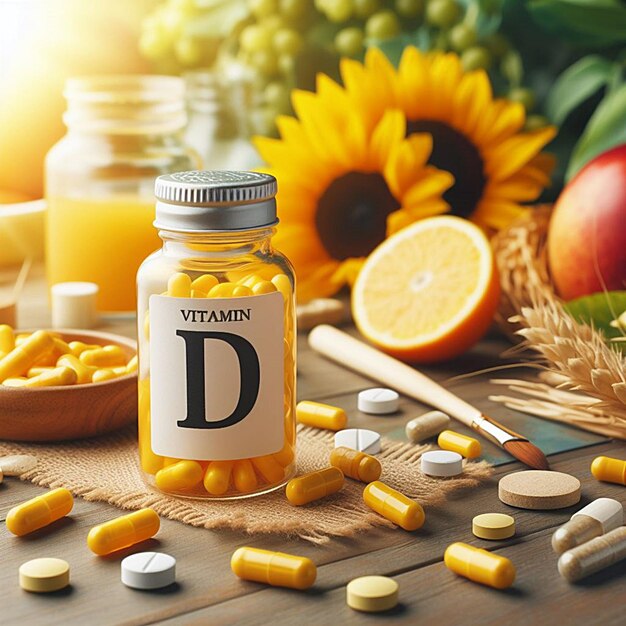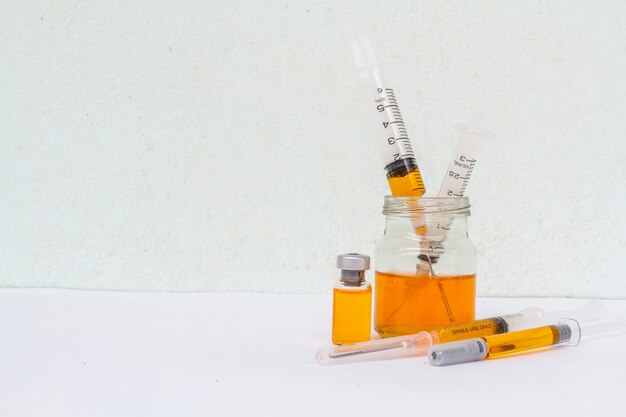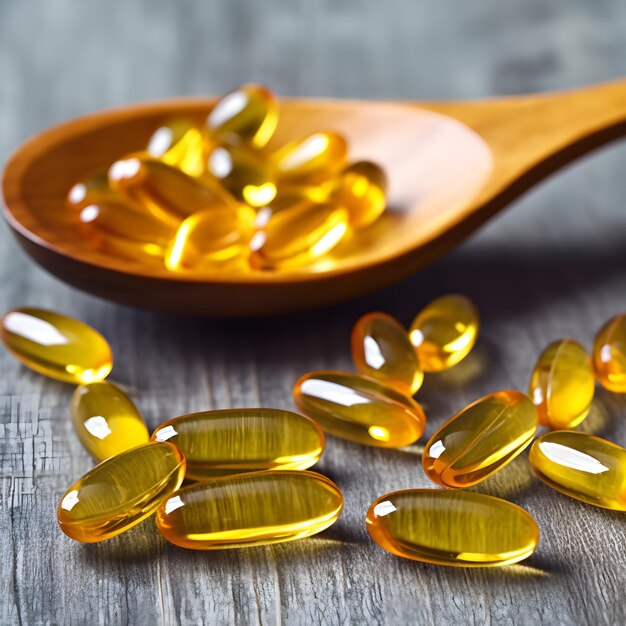Vitamin B12 is a nutrient abundantly used in the body for several important functions. To boost your energy, support brain health, or to produce red blood cells, you would never want to miss vitamin B12. So, lets see everything you need to know about vitamin B12from its benefits to symptoms of deficiency, and how to ensure you’re getting enough through diet or supplementation.
What is Vitamin B12?
Vitamin B12 is a water soluble vitamin, involved in DNA production, which maintains the proper functions of nerves and aids in the formation of red blood cells. B12 is different from other vitamins as it cannot be naturally synthesized by bacteria or plants but by bacteria. It is found only naturally in animal based foods and people on a plant based diet commonly suffer from this deficiency unless they supplement or consume fortified foods.
Key Benefits of Vitamin B12
1. Boosts Energy Levels
One of the most famous benefits of vitamin B12 is energy production. Vitamin B12 helps turn carbohydrates into glucose, which then becomes a source of fuel to the body. As a result, low levels of B12 will find you with weakness, fatigue, and your body unable to produce enough energy.
2. Supports Brain Health
Vitamin B12 is an essential nutrient for brain efficiency and health of nerves. It promotes the release of neurotransmitters, which are the substances that transmit impulses between the nerve cells in the brain. Studies have proven that proper levels of B12 ward off the risk of any kind of cognitive failure or memory loss as one ages.
3. Aids in development of Red Blood Cells
The first function is to produce healthy red blood cells. Deficiency of B12 causes megaloblastic anemia, and the largest red blood cells cannot work properly. Symptoms include weakness, paleness, and even shortness of breath.
4. Supports Heart Health
Vitamin B12 reduces the level of homocysteine in the blood. Elevated homocysteine level activates heart disease; hence, adequate intake of B12 enables the body to suffice its stock of other B vitamins, which help the body maintain vascular health.
5. Maintains Healthy Skin, Hair, and Nails
This vitamin also helps skin cells’ health and in the production of keratin. Keratin is a protein that gives strength to the hair and the nails; a deficiency in B12 may lead to hyperpigmentation, hair loss, and brittle nails.
Signs and Symptoms of Vitamin B12 Deficiency
A Vitamin B12 deficiency can lead to many symptoms that are mistaken as some other disease. Some common signs that you are suffering from a deficiency include:
Fatigue and Weakness: This happens because the primary task of B12 is the production of energy; without B12, you feel very weak and drained.
These are including:
Pale or Jaundiced Skin: It turns out to be pale or yellow due to anemia caused by misshapen red blood cells, due to a lack of an essential substance.
Tingling or Numbness: Numbness and tingling feelings in the hands and feet are manifestations of this level of B12 deficiency whose impact touches the nervous system.
Cognitive Problems: The inability to concentrate and memory disturbances are some symptoms of insufficient levels of B12 intake.
Mood Changes: Deficiency in B12 has been associated with a number of mood disorders such as depression and anxiety.
If you think that you may have a deficiency, then you first must see a healthcare professional to get tested with a blood test to find the number of B12 levels .
Best Dietary Sources of Vitamin B12
While some vitamins can be easily obtained from both plants and animals, Vitamin B12 is quite mainly sourced from animal food products. Some of the richest sources of Vitamin B12 include:
Beef Liver and Organ Meats: The richest among these, just an ounce of beef liver will provide several times the daily intake.
Fish: Tuna, salmon, and trout abound with B12 while rich in omega 3 fatty acids
Milk Products: Milk, yogurt, and cheese have B12 in their contents, thus excellent options for the populations that consume dairy
Eggs: An egg has lesser B12 as compared to meat or fish, but for the regular consumer of eggs, it remains a good source.
Fortified Foods: Many plant based products, including soy milk, cereals, and nutritional yeast, are often fortified with vitamin B12 so that those on a vegetarian or vegan diet can easily meet their daily needs for this nutrient.
Do You Need to Take a Vitamin B12 Supplement?
If you can’t get enough B12 from your food dietary restrictions, absorption problems, or other lifestyle choices supplement will probably be needed. Supplements are available in various formulations including tablets, sublingual (undereating) tablets and even injections whenever the deficiency is more serious.
At highest risk of deficiency are:
Since B12 is only available in small amounts within animal products, which they should avoid or rarely consume, vegans and vegetarians have no choice but to take fortified foods or supplements.
The stomach acid of the body decreases as one ages, and the body can no longer absorb vitamin B12 as effectively from its source.
Digestive Disorder Patients: People diagnosed with diseases such as Crohn’s disease and celiac disease are unable to have their body absorb vitamin B12.
Conclusion
Vitamin B12 is a super nutrient that is needed in the creation of energy, the functioning of the brain, and numerous other functions throughout the body. Ensuring sufficient intake through diet or supplement can be all that stands between shortage and optimal health. If you think you may be low in B12, then consult with a health care provider to discuss testing and supplementation.
Back to ‘Home‘
want to know about vitamin C so visit https://articalblog.online/benefits-of-vitamin-c/




One thought on “ The Ultimate Guide to Vitamin B12: Benefits, Deficiency Signs and Best Sources”